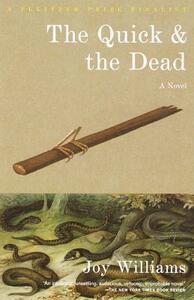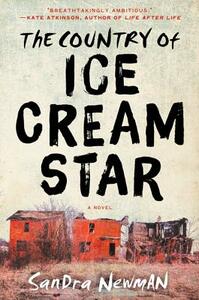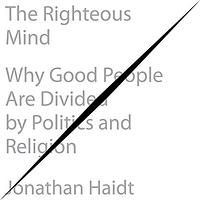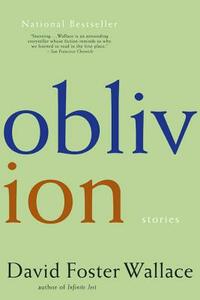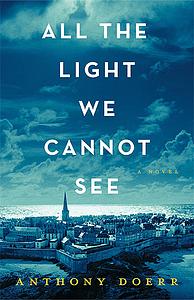Take a photo of a barcode or cover
matthewcpeck's Reviews (587)
'The Book of Strange New Things' has some rough spots. There is some bad dialogue and poorly judged prose. Readers that require a bit of science in their science fiction may find it laughable. And there is even a weirdly racist character description (you'll know what it is when you get there). But, gosh, this is an emotionally shattering novel, a profoundly moving examination of married love in a high-concept guise.
The story, which Faber tells organically and with a minimum of unnecessary exposition, is partly about married British Christian evangelicals Peter and Beatrice. Peter is a former substance addict and petty thief turned pastor, and Beatrice is a nurse. The other part of the story is a first-contact tale: an exoplanet dubbed 'Oasis' with breathable atmosphere and a humanoid population has been found, and an enigmatic corporation known as USIC has established a base on its surface. The same shadowy corporation has hired Peter - out of hundreds of candidates - as a missionary of sorts, to teach Scripture to the native 'Oasans' who are apparently head-over-heels about what they call the 'Book of Strange New Things'. But Beatrice, disappointingly, has been rejected and must stay behind.
As in all of Faber's eclectic fictions, this novel succeeds splendidly at immersing the reader in a foreign environment, bolstered by sensuous description. Oasis is a humid, flat wasteland with vapors that tickle the skin and circular rainstorms. The Oasans are feeble, hooded figures with heads that resemble a pair of 'intertwined fetuses'. Peter's only means of connection with Beatrice is a device called a Shoot that essentially allows interstellar emails, and thus much of the book consists of letters between husband and wife. It gives a touch of the 19th-century epistolary novel to the 1950s sci-fi plot.
While Peter is rousingly successful in his adventures living among the Oasans and building a modest church, the letters from Beatrice depict a rapidly deteriorating situation on Earth, full of environmental and economic disasters. The new disparity in their experiences - compounded by extreme distance - causes a schism in their relationship. The tragedies of humans seem more abstract to Peter, while Beatrice becomes more cynical and abrasive. And there are further surprises on the home front and in the USIC mission that can't be revealed here. But things fall apart.
Shortly after starting 'The Book Of Strange New Things', I learned that Faber's wife was diagnosed with terminal cancer during the writing of the novel, which Faber says will be his final work. I couldn't help letting this influence my reading of the book, but the central relationship is so convincing and strong that I imagine it would've haunted me all the same. The novel has a certain amount in common with 'The Bone Clocks' by Faber's buddy David Mitchell, a novel released at the same time that mixed Marvel Comics-like elements with a look at a bleak right-around-the-corner future on our planet. But where I found 'The Bone Clocks' strangely empty, I found Faber's book to be a beautiful, fascinating cry from the heart. I hope he's wrong about retiring.
The story, which Faber tells organically and with a minimum of unnecessary exposition, is partly about married British Christian evangelicals Peter and Beatrice. Peter is a former substance addict and petty thief turned pastor, and Beatrice is a nurse. The other part of the story is a first-contact tale: an exoplanet dubbed 'Oasis' with breathable atmosphere and a humanoid population has been found, and an enigmatic corporation known as USIC has established a base on its surface. The same shadowy corporation has hired Peter - out of hundreds of candidates - as a missionary of sorts, to teach Scripture to the native 'Oasans' who are apparently head-over-heels about what they call the 'Book of Strange New Things'. But Beatrice, disappointingly, has been rejected and must stay behind.
As in all of Faber's eclectic fictions, this novel succeeds splendidly at immersing the reader in a foreign environment, bolstered by sensuous description. Oasis is a humid, flat wasteland with vapors that tickle the skin and circular rainstorms. The Oasans are feeble, hooded figures with heads that resemble a pair of 'intertwined fetuses'. Peter's only means of connection with Beatrice is a device called a Shoot that essentially allows interstellar emails, and thus much of the book consists of letters between husband and wife. It gives a touch of the 19th-century epistolary novel to the 1950s sci-fi plot.
While Peter is rousingly successful in his adventures living among the Oasans and building a modest church, the letters from Beatrice depict a rapidly deteriorating situation on Earth, full of environmental and economic disasters. The new disparity in their experiences - compounded by extreme distance - causes a schism in their relationship. The tragedies of humans seem more abstract to Peter, while Beatrice becomes more cynical and abrasive. And there are further surprises on the home front and in the USIC mission that can't be revealed here. But things fall apart.
Shortly after starting 'The Book Of Strange New Things', I learned that Faber's wife was diagnosed with terminal cancer during the writing of the novel, which Faber says will be his final work. I couldn't help letting this influence my reading of the book, but the central relationship is so convincing and strong that I imagine it would've haunted me all the same. The novel has a certain amount in common with 'The Bone Clocks' by Faber's buddy David Mitchell, a novel released at the same time that mixed Marvel Comics-like elements with a look at a bleak right-around-the-corner future on our planet. But where I found 'The Bone Clocks' strangely empty, I found Faber's book to be a beautiful, fascinating cry from the heart. I hope he's wrong about retiring.
A treat for dual movie/comedy nerds, like yours truly. Oswalt's book is a memoir of his life in the second half of the 1990s, when he partook in several years
of obsessive moviegoing while working the comedy clubs on alternating nights. I thought I had a pretty good run there when I was an unattached Boston bachelor
in the early 2000s with one to two theatrical movies each week - but Patton was a champion, checking out double features at the beloved New Beverly
on Tuesday, then viewing a Hollywood blockbuster at a multiplex on Thursday. (The book includes some images of his meticulously maintained desk calendars, with
the film titles checked off, and an appendix of EVERYTHING he saw during this period, and when/where he saw it.)
Oswalt's stand-up stylings, which are built around stories and extended rants rather than one-liners, are suited well to the book format. His prose sometimes
tends towards the overwrought, but it's consistently smart, engrossing, and self-aware. He's an expert at the anecdote. Some of the more memorable in this book:
an unnamed '90s sitcom mega-star' making a smug jackass of himself in a movie theater; Oswalt's live readings of the script for Jerry Lewis's infamous,
legendary 'The Day The Clown Cried', readings which were brought to a premature halt upon threatened legal action from a hilariously awful film producer;
a fascinating and detailed account of Oswalt's experience filming his feature debut, as a radio operator with one line in the forgotten 'Down Periscope'.
In regards to those unknown actors you see on film and TV that appear to deliver a single line: Oswalt assures us that they've deliberated over that
performance for hours.
'Silver Screen Fiend' also offers an intriguing glimpse into the oddities and jealousies and inventiveness of the comedy world: Oswalt got into the LA scene
just at the right time, as the 'alt-comedy' movement exploded at the Largo, and it's described in eloquent detail here. In fact, I found the comedy stuff
more interesting than the cinema stuff, against my expectations.
Oswalt's book is not as gut-bustingly funny as the memoirs of Sarah Silverman or Rob Delaney, but he's such a passionate and insightful raconteur that I finished
it wanting more. I look forward to future mini-memoirs to come.
of obsessive moviegoing while working the comedy clubs on alternating nights. I thought I had a pretty good run there when I was an unattached Boston bachelor
in the early 2000s with one to two theatrical movies each week - but Patton was a champion, checking out double features at the beloved New Beverly
on Tuesday, then viewing a Hollywood blockbuster at a multiplex on Thursday. (The book includes some images of his meticulously maintained desk calendars, with
the film titles checked off, and an appendix of EVERYTHING he saw during this period, and when/where he saw it.)
Oswalt's stand-up stylings, which are built around stories and extended rants rather than one-liners, are suited well to the book format. His prose sometimes
tends towards the overwrought, but it's consistently smart, engrossing, and self-aware. He's an expert at the anecdote. Some of the more memorable in this book:
an unnamed '90s sitcom mega-star' making a smug jackass of himself in a movie theater; Oswalt's live readings of the script for Jerry Lewis's infamous,
legendary 'The Day The Clown Cried', readings which were brought to a premature halt upon threatened legal action from a hilariously awful film producer;
a fascinating and detailed account of Oswalt's experience filming his feature debut, as a radio operator with one line in the forgotten 'Down Periscope'.
In regards to those unknown actors you see on film and TV that appear to deliver a single line: Oswalt assures us that they've deliberated over that
performance for hours.
'Silver Screen Fiend' also offers an intriguing glimpse into the oddities and jealousies and inventiveness of the comedy world: Oswalt got into the LA scene
just at the right time, as the 'alt-comedy' movement exploded at the Largo, and it's described in eloquent detail here. In fact, I found the comedy stuff
more interesting than the cinema stuff, against my expectations.
Oswalt's book is not as gut-bustingly funny as the memoirs of Sarah Silverman or Rob Delaney, but he's such a passionate and insightful raconteur that I finished
it wanting more. I look forward to future mini-memoirs to come.
3 1/2 stars. 'The Country of Ice Cream Star' is yet another book about a teenager in a grim, post-cataclysmic future. Sandra Newman's novel is made distinct, however, through the the sheer intensity of its physical and emotional violence, and through the dialect in which it is written. The titular 15-year-old heroine narrates the book in a remarkably sustained patois that mixes ebonics, French, and condensed English. There is a bit of a learning curve when starting this book - and Newman, thankfully, doesn't hold the reader's hand - but it soon becomes easy to immerse oneself in the unbridled poetry of Ice Cream's words. Even though I would sometimes have to read a line of dialogue two or three times to really comprehend it, which is not really desirable in a 580-page epic.
'The Country of Ice Cream Star' is a descendant of other works of speculative fiction that tell their stories in a meticulously altered language, like 'A Clockwork Orange', the middle section of 'Cloud Atlas', and especially Russell Hoban's 'Riddley Walker'. But where I found 'Riddley Walker', for all its innovation, to be overly cerebral, Newman's novel is frighteningly vivid. Even with the strange prose, you can see, hear and smell the world of the novel, which begins in an unrecognizable, feudal Massachusetts some eighty years after a devastating plague that kills any person before they reach their mid-twenties. I won't go into a detailed plot summary, but Ice Cream's hero's journey is set into motion when her tribe captures a pale-skinned stranger who claims to be thirty and to know of a cure. The story moves to a New York City dictated by a Catholic Oligarchy in the darkly funny midsection of the book - which was my favorite part, and the one most reminiscent of 'Riddley Walker' - and then climaxes in a battle in a future Washington, D.C. overseen by 'Marines'. Alas...the whole thing ends somewhat awkwardly and unsatisfactorily. Perhaps Sandra Newman, who mentions in the acknowledgments that the original manuscript was 900 pages, didn't know how to leave this world. Or perhaps there is a sequel in the works.
Odd ending and frustrating love interest aside, 'Ice Cream Star' is still an exceptional book, and one that I like to see increase in popularity. Sandra Newman is a wickedly intelligent and compelling storyteller.
'The Country of Ice Cream Star' is a descendant of other works of speculative fiction that tell their stories in a meticulously altered language, like 'A Clockwork Orange', the middle section of 'Cloud Atlas', and especially Russell Hoban's 'Riddley Walker'. But where I found 'Riddley Walker', for all its innovation, to be overly cerebral, Newman's novel is frighteningly vivid. Even with the strange prose, you can see, hear and smell the world of the novel, which begins in an unrecognizable, feudal Massachusetts some eighty years after a devastating plague that kills any person before they reach their mid-twenties. I won't go into a detailed plot summary, but Ice Cream's hero's journey is set into motion when her tribe captures a pale-skinned stranger who claims to be thirty and to know of a cure. The story moves to a New York City dictated by a Catholic Oligarchy in the darkly funny midsection of the book - which was my favorite part, and the one most reminiscent of 'Riddley Walker' - and then climaxes in a battle in a future Washington, D.C. overseen by 'Marines'. Alas...the whole thing ends somewhat awkwardly and unsatisfactorily. Perhaps Sandra Newman, who mentions in the acknowledgments that the original manuscript was 900 pages, didn't know how to leave this world. Or perhaps there is a sequel in the works.
Odd ending and frustrating love interest aside, 'Ice Cream Star' is still an exceptional book, and one that I like to see increase in popularity. Sandra Newman is a wickedly intelligent and compelling storyteller.
You've noticed it in your Facebook feed, this week in particular: decent, mostly intelligent people, some of whom are beloved family members, are hopelessly, stubbornly divided in their ideologies. Some of the ideologies or value systems are incomprehensible to you on a gut level. Others are generally aligned with your own views, but are frustratingly binary or hypocritical. Could science have anything to offer in the way of explaining this disheartening tribalism that seems to be increasing in our country?
Yes it can, in the form of this concise and brilliant book. Jonathan Haidt is a psychologist at the University of Virginia that has specialized in morals, developing a Moral Foundations Theory that attempts to boil down all of humanity's moral thinking into six fundamental matrices ("Care/Harm", "Oppression/Freedom" and others). He and his research team conducted hundreds of interviews across the spectrum of political leanings, and then "scored" the results on the moral matrices accordingly. Virtually any sociopolitical opinion can be placed in one of these 6 categories.
There are three sections in "The Righteous Mind". Haidt starts his book with a look at the way the mind processes what we think of as reasoning - really just justifications for deep-seated intuitions - and a reminder that most of the world lives under a moral code much different than our individualistic Western one. The middle section delves into Haidt's moral foundation research. The aforementioned interviews suggest that liberal minds prioritize "Care/Harm" morals above all else, while conservative minds actually have a broader group of morals, placing importance on 'Loyalty' and 'Sanctity' among others. The final section boldly branches away from psychology into evolutionary biology, speculating on the importance of group selection in human evolution as well as the mental origins and benefits of religion. The last chapter, entitled "Can't We All Disagree More Constructively?" is a sensible plea for open-mindedness in our political debate, providing an excellent overview of liberalism, conservatism, and libertarianism philosophies, and reminding that each offers something essential to a happy society. Which may be difficult to accept, because so many of us can't see past our moral blinders.
This is just scratching the surface of "The Righteous Mind", a book that doesn't contain a single uninteresting paragraph. Sure, there are a few statements and conclusions that I could nitpick, as there are in any work that contains sensitive politics and cautiously speculative science. But Haidt isn't telling the reader what to think, he is suggesting HOW to think, by showing how our divisions are just standard-issue human nature. It surprised me, amused me, and taught me how to view my Facebook feed in a more enlightened way.
Yes it can, in the form of this concise and brilliant book. Jonathan Haidt is a psychologist at the University of Virginia that has specialized in morals, developing a Moral Foundations Theory that attempts to boil down all of humanity's moral thinking into six fundamental matrices ("Care/Harm", "Oppression/Freedom" and others). He and his research team conducted hundreds of interviews across the spectrum of political leanings, and then "scored" the results on the moral matrices accordingly. Virtually any sociopolitical opinion can be placed in one of these 6 categories.
There are three sections in "The Righteous Mind". Haidt starts his book with a look at the way the mind processes what we think of as reasoning - really just justifications for deep-seated intuitions - and a reminder that most of the world lives under a moral code much different than our individualistic Western one. The middle section delves into Haidt's moral foundation research. The aforementioned interviews suggest that liberal minds prioritize "Care/Harm" morals above all else, while conservative minds actually have a broader group of morals, placing importance on 'Loyalty' and 'Sanctity' among others. The final section boldly branches away from psychology into evolutionary biology, speculating on the importance of group selection in human evolution as well as the mental origins and benefits of religion. The last chapter, entitled "Can't We All Disagree More Constructively?" is a sensible plea for open-mindedness in our political debate, providing an excellent overview of liberalism, conservatism, and libertarianism philosophies, and reminding that each offers something essential to a happy society. Which may be difficult to accept, because so many of us can't see past our moral blinders.
This is just scratching the surface of "The Righteous Mind", a book that doesn't contain a single uninteresting paragraph. Sure, there are a few statements and conclusions that I could nitpick, as there are in any work that contains sensitive politics and cautiously speculative science. But Haidt isn't telling the reader what to think, he is suggesting HOW to think, by showing how our divisions are just standard-issue human nature. It surprised me, amused me, and taught me how to view my Facebook feed in a more enlightened way.
The third novel by Charles Portis is a deadpan comic masterwork. It's about a Little Rock copy editor named Raymond Midge that embarks on a madcap journey into Central America in search of the coworker that ran off with his car and his wife. He picks up a "defrocked" doctor and swindler named Reo Symes and ends up tracking down his quarry - and facing down a hurricane - in British Honduras (now Belize). That's about as much plot as there is, which is a good thing.
"The Dog of the South" is a picaresque, a road book, and a source of slacker humor that's ahead of its time. As in "True Grit", much of its strength is derived from the carefully crafted first-person narration. Raymond Midge, with his enthusiasm for Civil War history and vague plans for continuing education, is a rather dull guy. No matter how stressful, life-threatening, or grotesque his surroundings, his emotional barometer rarely rises beyond a "would you believe that?"-type bemusement and his tone retains a proper Southern deliberateness.
"The Dog of the South" avoids datedness and contains at least one shockingly hilarious sentence on each page. It's an underrated, idiosyncratic American novel.
"The Dog of the South" is a picaresque, a road book, and a source of slacker humor that's ahead of its time. As in "True Grit", much of its strength is derived from the carefully crafted first-person narration. Raymond Midge, with his enthusiasm for Civil War history and vague plans for continuing education, is a rather dull guy. No matter how stressful, life-threatening, or grotesque his surroundings, his emotional barometer rarely rises beyond a "would you believe that?"-type bemusement and his tone retains a proper Southern deliberateness.
"The Dog of the South" avoids datedness and contains at least one shockingly hilarious sentence on each page. It's an underrated, idiosyncratic American novel.
"People Who Eat Darkness" is a sweeping, complex, and often mesmerizingly strange true-crime account of the Lucie Blackman case, a saga that was (understandably) covered more heavily in England and Japan than in the US.
Blackman, a 21-year-old British citizen, was working as a bar hostess in Tokyo when she vanished in July of 2000. The search effort, Lucie's appalling fate, and the extended trial of the enigmatic accused man are just the main events in Parry's multifaceted book. Like "In Cold Blood" or "Serial", a single horrible crime - and in this case one with plenty potential for lurid exploitation - is starting point for an exploration of human nature.
There is much to discuss in this book, beyond forensic details and legal proceedings. There is racism - from some Westerners towards Japan, and from some Japanese towards Koreans. There is a pointed critique of Japanese law enforcement, and their dearth of experience with violent crime. And most powerfully, Parry paints a vivid picture of the way that one of those violent crimes affects everyone around it in widening ripples that grow for years and years.
The criminal in this case - Joji Obara - remains mysterious and somewhat unknowable. This might have been a perfect book of Obara had agreed to even a single interview. And Parry's writing is sometimes unfettered and excessive. But he has an enormous amount of empathy, and I quite liked his tendency to stray from the standard mode of objective journalism towards something more empassioned. I'm not big on nonfiction crime books, but if there are more books as engrossing as "People Who Eat Darkness", I should change my ways.
Blackman, a 21-year-old British citizen, was working as a bar hostess in Tokyo when she vanished in July of 2000. The search effort, Lucie's appalling fate, and the extended trial of the enigmatic accused man are just the main events in Parry's multifaceted book. Like "In Cold Blood" or "Serial", a single horrible crime - and in this case one with plenty potential for lurid exploitation - is starting point for an exploration of human nature.
There is much to discuss in this book, beyond forensic details and legal proceedings. There is racism - from some Westerners towards Japan, and from some Japanese towards Koreans. There is a pointed critique of Japanese law enforcement, and their dearth of experience with violent crime. And most powerfully, Parry paints a vivid picture of the way that one of those violent crimes affects everyone around it in widening ripples that grow for years and years.
The criminal in this case - Joji Obara - remains mysterious and somewhat unknowable. This might have been a perfect book of Obara had agreed to even a single interview. And Parry's writing is sometimes unfettered and excessive. But he has an enormous amount of empathy, and I quite liked his tendency to stray from the standard mode of objective journalism towards something more empassioned. I'm not big on nonfiction crime books, but if there are more books as engrossing as "People Who Eat Darkness", I should change my ways.
Except for a few nonfiction pieces, I have now made it through the entire bibliography of David Foster Wallace : -(.
Briefly: "Oblivion" is his final and, I feel, best collection of short stories. If typical short fiction pieces are, say, hand grenades, these are like hydrogen bombs: there is so much imagination, heart, and labyrinthine density.
Each story is uniquely great, but "The Soul Is Not A Smithy" is my favorite, compellingly demonstrating Wallace's gift for character's voice and powerfully vivid descriptions of mental landscapes.
Briefly: "Oblivion" is his final and, I feel, best collection of short stories. If typical short fiction pieces are, say, hand grenades, these are like hydrogen bombs: there is so much imagination, heart, and labyrinthine density.
Each story is uniquely great, but "The Soul Is Not A Smithy" is my favorite, compellingly demonstrating Wallace's gift for character's voice and powerfully vivid descriptions of mental landscapes.
"The Maid's Version" is yet another impressive and powerful novel by Daniel Woodrell, a multi-generational ensemble piece that spans decades, despite being only 167 pages long.
The story, pivoting around the mystery of grisly dance hall explosion in 1929, is narrated by the grandson of the titular housekeeper Alma. Alma's life story, saturated with appalling poverty and grief, is the other key narrative in the book. But Woodrell jumps back and forth to different times and points of view, richly texturing his Ozarks village in a wonderfully nonlinear fashion. A layered and haunting portrait of the suspicions, secret passions, and simmering class resentments of a rural community is painted in Woodrell's electrifying prose.
Much recommended as an addition to any collection of rural Gothic/southern/tragicomic literature.
The story, pivoting around the mystery of grisly dance hall explosion in 1929, is narrated by the grandson of the titular housekeeper Alma. Alma's life story, saturated with appalling poverty and grief, is the other key narrative in the book. But Woodrell jumps back and forth to different times and points of view, richly texturing his Ozarks village in a wonderfully nonlinear fashion. A layered and haunting portrait of the suspicions, secret passions, and simmering class resentments of a rural community is painted in Woodrell's electrifying prose.
Much recommended as an addition to any collection of rural Gothic/southern/tragicomic literature.
This Pulitzer winner tells, in subjective present tense, of parallel comings-of-age in Europe during the second World War: Marie-Laure in France and Werner in Germany. The former's youth is disrupted first by childhood blindness and then by years of Nazi occupation, while the latter - an orphaned radio whiz - is processed through the machine of the German armed forces. Their paths converge in the walled Breton coastal city of St. Malo in 1945, as the Reich is collapsing.
There are many fine qualities to Doerr's sweeping epic. His sense of ambient, textural detail goes a long way towards constructing Marie-Laure's sightless world. A sentence of crystalline perfection will occasionally pop up in the midst of his genteel prose, and floor you. The motif of a connecting network of light, in all its forms, is used beautifully and compellingly. And there are moments and scenes that are devastating, unforgettable. But there are also elements that felt frustratingly weak and hackneyed, like the cliche of overly precocious children, and a dollop of gushing sentimentality. There is a tertiary plotline about a possibly cursed diamond, a narrative that is both corny and completely unneeded, aside from supplying some heavy-handed metaphor and a touch of the mystic. If a character is fat, they're probably up to no good. I could go on.
Doerr's book is certainly engrossing, and built with tiny chapters that move with breakneck speed. It's worth your time, but just not quite the great work of art I was expecting.
There are many fine qualities to Doerr's sweeping epic. His sense of ambient, textural detail goes a long way towards constructing Marie-Laure's sightless world. A sentence of crystalline perfection will occasionally pop up in the midst of his genteel prose, and floor you. The motif of a connecting network of light, in all its forms, is used beautifully and compellingly. And there are moments and scenes that are devastating, unforgettable. But there are also elements that felt frustratingly weak and hackneyed, like the cliche of overly precocious children, and a dollop of gushing sentimentality. There is a tertiary plotline about a possibly cursed diamond, a narrative that is both corny and completely unneeded, aside from supplying some heavy-handed metaphor and a touch of the mystic. If a character is fat, they're probably up to no good. I could go on.
Doerr's book is certainly engrossing, and built with tiny chapters that move with breakneck speed. It's worth your time, but just not quite the great work of art I was expecting.

